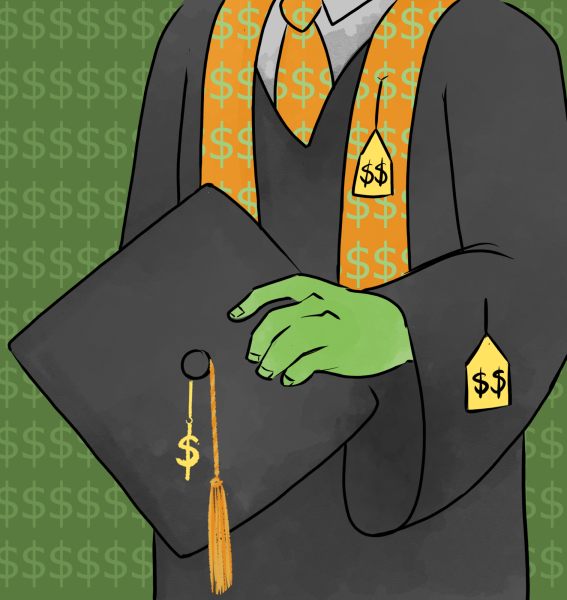Consumers should have the right to own more of their own media
April 26, 2016
I’m all for the development of new technology. What I’m not too keen on, however, is the premise that all digital collections, archives and files we each collect over the years could easily vanish in our lifetime.
When I started down the path of journalism and digital communications, I was often told that “newspapers will likely be completely gone in about five years.”
This was back in 2011.
Though the decline of print-based media models continues to decline, I doubt that the remaining newspapers and magazines will all magically vanish in the next year. It’s also important to not mistake the term “newspapers” with the overall premise of “journalism,” because we especially still need news.
About three years ago, I wrote a column titled “Print and Digital Media: A Case for Coexistence,” where I outline the pros and cons of each. Common themes include the resource exhaustion for producing so many “two-year throwaway” electronics such as cell phones and tablets, and a University of Oregon study that actually highlights how people retain information better that they read from a print source.
Still, I find it continually fascinating to see how long newspapers and magazines have actually held on in a world where Moore’s law doesn’t have so much as a “pause” button and we keep hearing about how different our lives will be in the next decade.
Imagine, for instance, how robots could totally become a household staple. Don’t worry, we hopefully won’t deal with the same type of dystopian future we often see in the “Terminator” movies.
Hopefully.
Similar articles and columns have popped up throughout the following years that continue to forecast what we could be up against with media shifts. For instance, one CNBC article that published in Oct. 2014 leads with “Bid farewell to your collection of movies, books and music.”
The articles goes on to explain how current digital rights license agreements mean that many “owners” of digital content are merely renting it.
And this is not incorrect—especially since many streaming servers, electronic archives and so-called “clouds” could shut down at any time.
Granted, one could make the argument that somebody could torch an entire library, archive or museum (see: The Lighthouse of Alexandria), but there’s still a certain sense of security through publicly owned and maintained records that we don’t see as much in the digital world.
This is also why we’ve seen the rebirth of media such as vinyl records, or the continuing support of classic bookstores.
We also walk away with a more authentic marketplace experience. I don’t know about you, but I feel less excited about surfing around on Amazon for two hours as opposed to literally losing myself in Powell’s.
What it all comes down to is the premise of consumers voting with their dollar.
The majority of us love the premise of instant access to various media platforms for what appears to be a much smaller amount of money. I could rent one of my favorite films for 48 hours for anywhere between $1-2 and wouldn’t have to fret over the burden of some obscure $60 late fee.
I have a strange hunch that this is why we saw stores such as Hollywood Video vanish so quick.
But instead of seeing the renters and owners markets shift, we’re witnessing an era in which the renters market appears to replace the owners market outright.
Though I know for a fact I prefer one avenue more than the other myself (ownership), certain models work well with different people.
I only hope we can find ways to keep our options open as technology continues to progress.
And let’s face it—regardless of our continuing economic status, a majority of this growing tech isn’t going anywhere.
Anywhere but forward, that is.
The opinions expressed in Bassinger’s column do not necessarily reflect those of The Daily Barometer staff.





















































































































